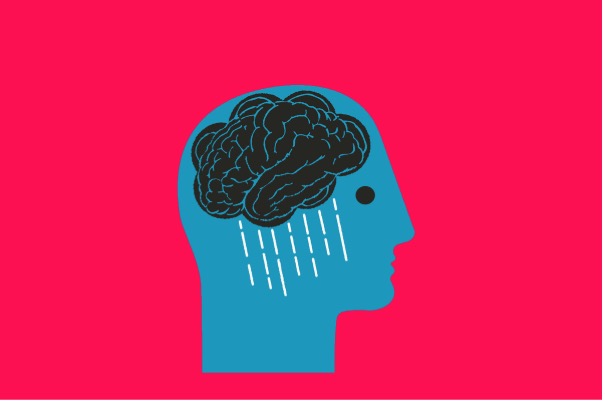Comments
WELLNESS - As a family member, friend, or confidant of a college student, it can be concerning to recognize when an individual is going through mental health issues and not have the knowledge of how to help. If you find yourself worrying over the state of paranoia and panic in a college student’s life, remember that there are many ways to provide guidance and comfort. For example, students can get the most reliable psychology homework help from Studybay or EssayPro. Such services can help reduce stress and anxiety in students regarding tight deadlines for their projects and college assignments.
Understanding the circumstances your loved one is in and validating their feelings is the first step – nobody should feel as if they are alone, especially during times of mental distress. Furthermore, it is important to be proactive in connecting college students with trusted professionals or resources where they can receive more detailed solutions for their individualized needs.
Never underestimate the power of human connection; just making yourself available for someone in need of mentorship can do wonders for another person’s journey to stability.
Remember, even small gestures can make a big difference for someone dealing with mental health problems. So, don't hesitate to reach out and offer your support. The college years can be tough for anyone, but they can be especially challenging for those dealing with mental health issues. With a little understanding and care, though, you can help make things a bit easier for the college students in your life.
Understand that mental health is a real issue and not just "stress"
Mental health is an increasingly pressing issue in the 21st century. It is not limited to simple stress; it encompasses a wide range of emotional and psychological conditions that can have an immense impact on an individual's life.
Mental illnesses such as depression, anxiety, bipolar disorder, and even post-traumatic stress disorder are becoming more commonplace among all generations. Everyone should take mental health seriously by educating themselves on the various disorders that can affect people; understanding how to recognize them in yourself or others, and being aware of the help available through psychology consultants, therapists, and other treatments.
Taking proactive steps towards awareness can end stigmas and change perspectives when it comes to mental health challenges.

Talk to your college student about their symptoms and how they're feeling
As a parent of a college student, it's important to talk to your child about their mental health. Have an honest conversation with them about how they are feeling and if they have been experiencing any worrisome symptoms or changes in mood or energy levels.
Ask what strategies they have used in the past and discuss further support they may need, such as professional counseling or medication management if needed. Most importantly, remind your college student that you are there for them and willing to help wherever possible.
Encourage them to seek professional help if necessary
Mental health is an incredibly important part of overall wellbeing, but it's not always easy to tackle a significant personal issue on your own. We all need help at different points in our lives, and there's nothing wrong with seeking professional assistance if necessary.
Whether you have been struggling with depression or anxiety, are having difficulty managing a work/life balance, or simply want someone to talk to, today's healthcare system offers many options that can provide you with the guidance and support you need to find healthy solutions and get back on track.
Taking care of your mental health should be prioritized like any other aspect of well-being. If you're feeling overwhelmed or dealing with challenges that seem insurmountable, it may be beneficial to seek professional help. It can be daunting to reach out for assistance; however, finding the courage and strength to speak up is critical in order to develop better coping mechanisms and overcome distressing thoughts and emotions.
Furthermore, there is no shame in asking for help from a trained therapist who specializes in mental health issues, and this support could be instrumental in overcoming obstacles on your journey to a healthier outlook.
Help them develop a healthy routine including exercise, proper nutrition, and enough sleep
Keeping to a healthy routine is essential for overall wellbeing. Promoting an active lifestyle with consistent, moderate exercise helps maintain physical strength and flexibility while providing stress relief.
Achieving and maintaining a healthy weight is not a one-off event, but rather an ongoing process. There are several components to consider that can offer effective guidance when attempting to make smart decisions about nutrition and lifestyle. Firstly, adopting a well-rounded nutritional pattern that provides the body with essential vitamins and minerals is key to achieving overall health and wellness.
Additionally, adequate hydration throughout the day is vital for optimal bodily functioning. It’s also important to avoid wide fluctuations in caloric intake; avoiding slipping into unhealthy habits such as extreme diets may help develop habits that last in the long run. With careful consideration towards embracing these practices, individuals have the potential to improve their physical health through their diet and lifestyle decisions.
Lastly, extending healthy habits into bedtime routines can help ensure that individuals get enough sleep, improving alertness during the day and enabling them to perform their best. By implementing these measures, promoting good health can be achieved for all individuals.

Be there for them as a support system - listen without judgment and offer advice when asked
Being a support system for someone in need can be one of the most gratifying experiences. In these uncertain times, it is even more important to be there for the people around us, providing comfort and guidance should they need it.
Listening without judgment can help those in distress express their emotions and feel validated in their thoughts, while offering advice is a wonderful way to show your care.
Make sure to express empathy before any tips you give; this simple step can make a world of difference in how your advice is received. Such kindness will never go unnoticed and could result in valuable bonds between yourself and others.
Follow up with them regularly to see how they're doing
It is extremely important to follow up and check in with an individual who has had a supportive conversation about mental health issues. A simple phone call or text message can show them that they are not alone and that someone cares about their wellbeing. This can have an immense positive impact, especially during times of distress.
Finally, it is critical to remind them that there is no shame or stigma attached to seeking help and that it is a sign of strength and courage to confront their problems. Being positive and supportive can have a profound effect on the person’s outlook on life and can often be the catalyst they need to seek further assistance.
Concluding Thoughts
When it comes to college students and mental health, it's important to be proactive rather than reactive. If you think your college student is struggling with their mental health, have a conversation with them about their symptoms and how they're feeling.
If necessary, encourage them to seek professional help. You can also help them develop a healthy routine that includes exercise, proper nutrition, and enough sleep. Lastly, be there for them as a support system - listen without judgment and offer advice when asked.
Follow up with them regularly to see how they're doing. By taking these steps, you can help your college student manage their mental health in a healthy way.
###















